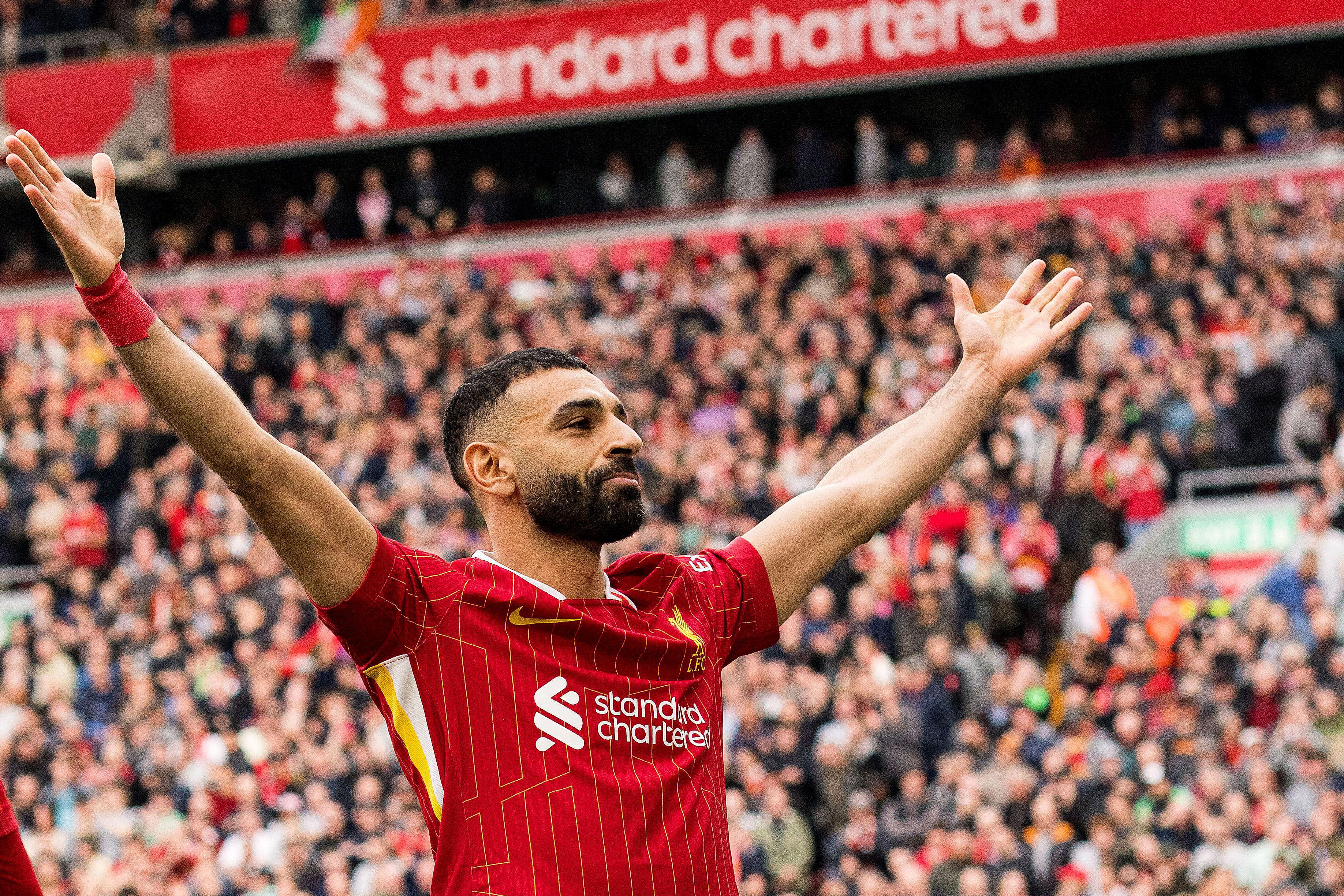FourFourTwo's 100 Greatest Footballers EVER: 80 to 71
A dominant centre-half and a prolific striker - and that’s just John Charles on his own. Part three takes in players from Wales, Scotland, France, Italy and beyond

80. Thierry Henry
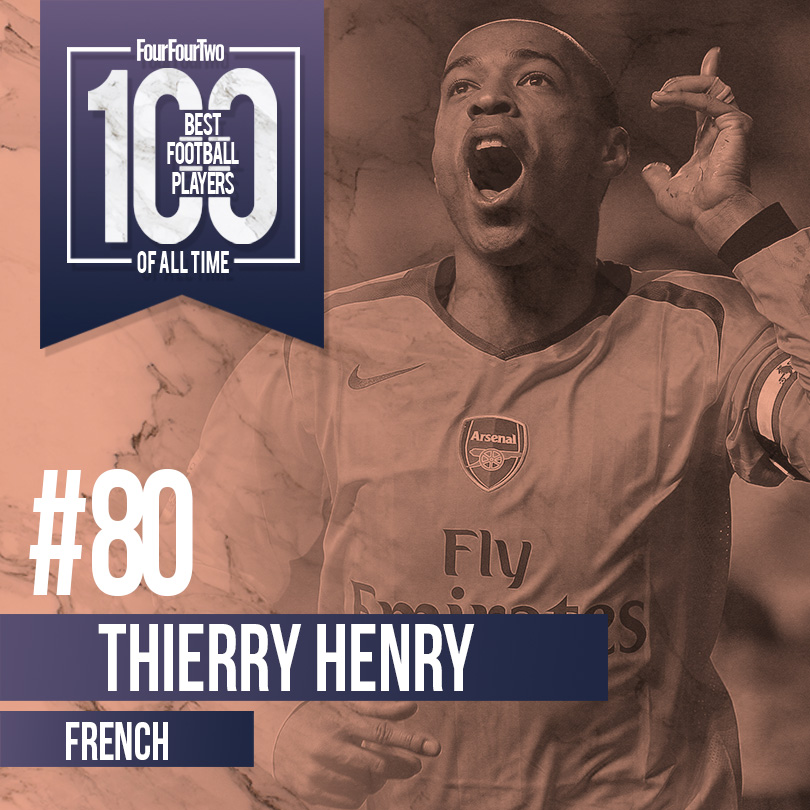
Why are they here?
Untouchable for the half-decade he spent at his peak, Henry guided Arsenal through the most glittering period of their modern history in unfathomably urbane fashion. One of a select few players to have a distinct type of signature goal – the one-on-one down the inside-left channel, slotting the ball inside the far post with the instep of his right foot – he scored over 20 goals for five seasons on the trot, back when that was an elite striker’s magic number.
The mercurial Frenchman could use both feet, was able to finish with either savagery or subtlety, and didn’t lack pace nor competitive arrogance. Arguably the most frightening striker of the Premier League era, Henry also scored a national-record 51 goals for France.
Career highlight
Did all his best stuff at Arsenal, but his involvement with the early incarnations of Pep Guardiola’s epochal Barcelona side, including a treble win in 2009, felt like a career’s vindication.
Words: Alex Hess
79. Gigi Riva
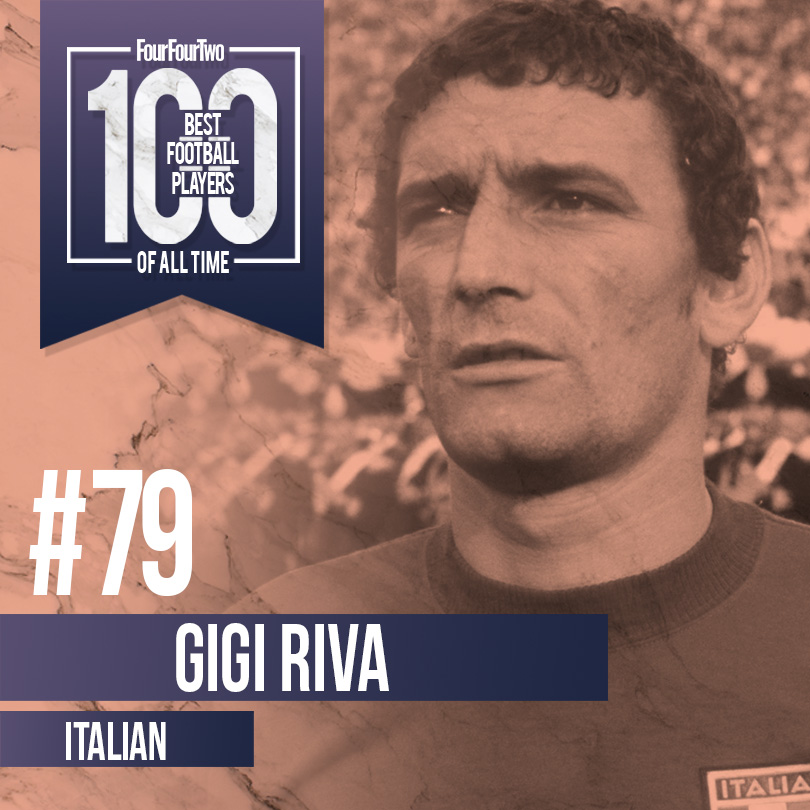
Why are they here?
Italy’s all-time record scorer, Riva was a powerfully built left-footer with a formidable shot who raised an unfashionable club to glory. Riva was forced into premature retirement at just 32 after a succession of injuries, but by then it was a case of job done: he spent 13 years at Cagliari, helping himself to 207 goals at club level and another 35 (in just 42 games) for his country.
Get FourFourTwo Newsletter
The best features, fun and footballing quizzes, straight to your inbox every week.
With Italy, his exploits were key in the nation’s victory at Euro 1968, and their place as runners-up at the World Cup two years later, but his greatest achievement came in Serie A.
Career highlight
Leading Cagliari to their first and only Scudetto in 1970, his 21 goals from 28 games were the vital ingredient in a historic accomplishment.
Words: Alex Hess
78. Just Fontaine
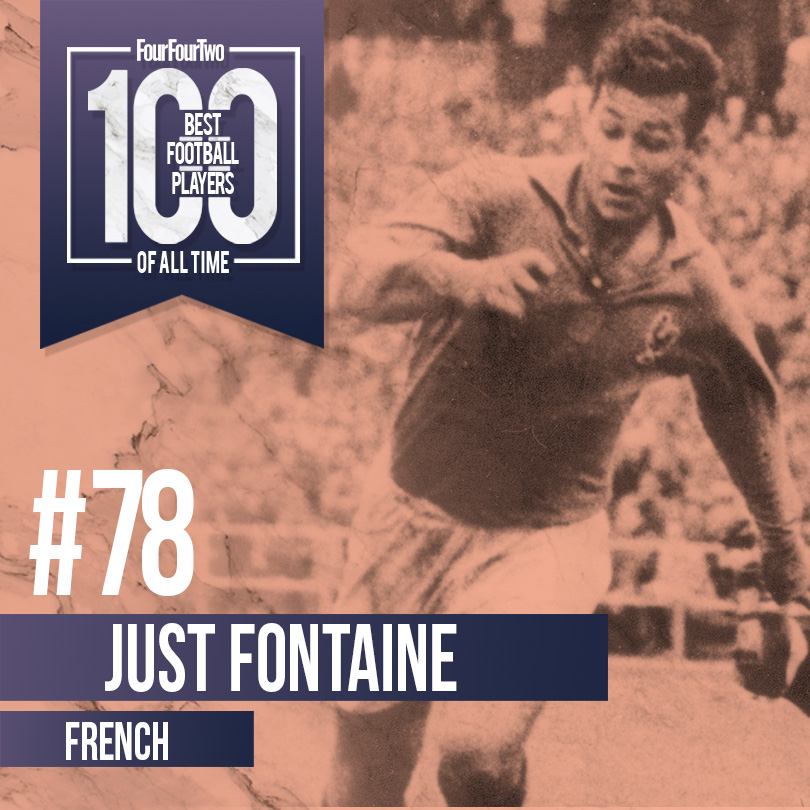
Why are they here?
In tandem with Raymond Kopa at Stade de Reims, the diminutive Fontaine - two footed and smooth - plundered goals for fun. He carried on scoring even after Kopa departed to Real Madrid in 1958, eventually netting 121 goals in six years for Reims.
Fontaine, who scored a hat-trick on his international debut against Luxembourg, is best known for his remarkable 13-goal haul at the 1958 World Cup. He remains the overall fourth-highest scorer in World Cup history, despite having scored in one tournament.
Career highlight
Fontaine's four goals in the third-place play-off match against reigning world champions West Germany meant he passed Sandor Kocsis's 11-goal record in 1954 – a moment to treasure.
Words: Jon Spurling
77. Frank Rijkaard
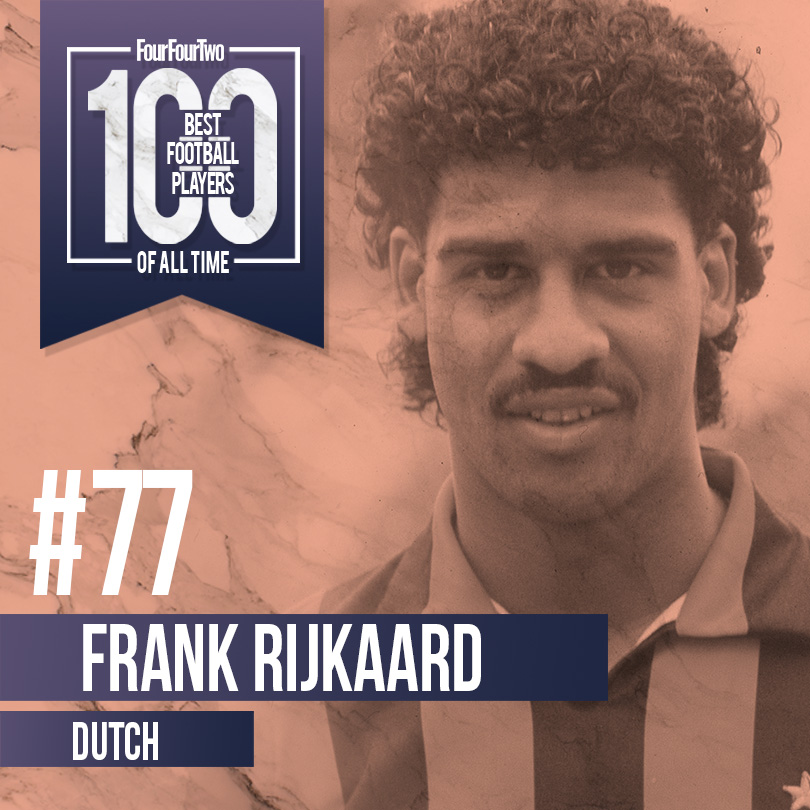
Why are they here?
Few players are good enough or lucky enough to play for a single great club side in the course of their career. Rijkaard played for three. The Ajax team of the early '80s, where he cut his teeth under the stewardship of Johan Cruyff and alongside Marco van Basten, Jan Molby and Ronald Koeman. Then Arrigo Sacchi’s seminal Milan team, where he won successive European Cups in 1989 and 1990. After that he finally returned to join Ajax's now-legendary European Cup-winning side of 1995, by then an old head among a team of fresh-faced stars-in-waiting.
Aggressive, quick-witted and with a marathon runner’s endurance levels, Rijkaard was a precursor to the great box-to-box midfielders that emerged in the '90s – Keane, Vieira and Gerrard – but with abundant added silk.
Career highlight
Sauntering through the Benfica defence to slot home the only goal of the 1990 European Cup Final.
Words: Alex Hess
76. Denis Law
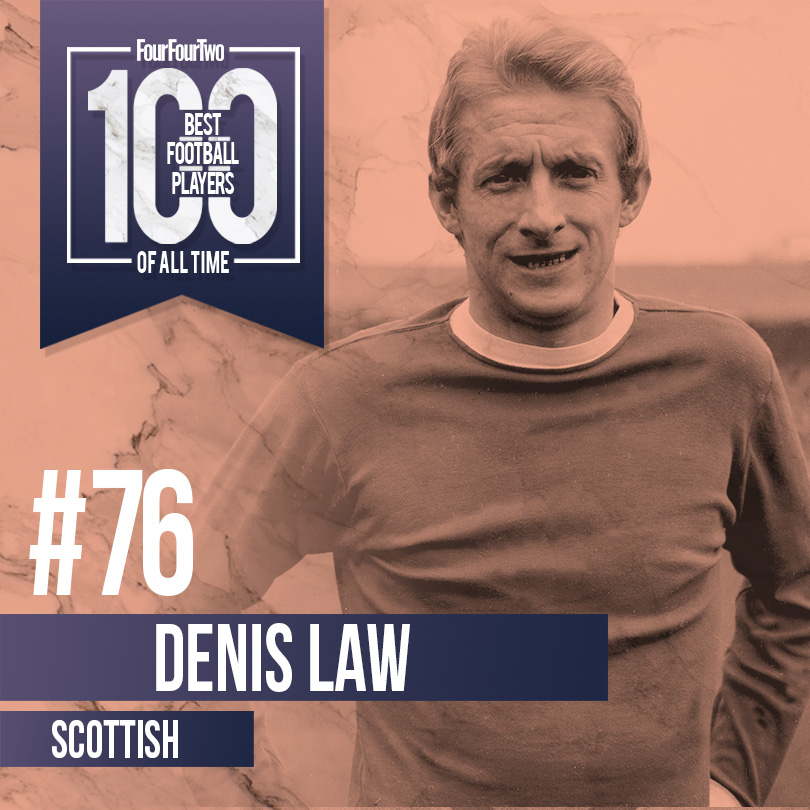
Why are they here?
There wasn't a more thrilling sight in the 1960s and early '70s than the vision of 'The Lawman' triumphantly punching his right fist into the air after plundering one of his 237 goals in 404 Manchester United appearances.
Law netted United's first goal in the 1963 FA Cup Final, won two league titles with Matt Busby's men, and dovetailed perfectly with the other two members of the 'Holy Trinity' - George Best and Bobby Charlton. Having unluckily missed out on the European Cup final triumph in 1968 with injury, Law nonetheless played on into the technicolor '70s, before enjoying a second spell at rivals Manchester City.
Career highlight
Law was United's top scorer during their title-winning 1964/65 campaign, winning the Ballon d'Or in the process.
Words: Jon Spurling
75. Cafu
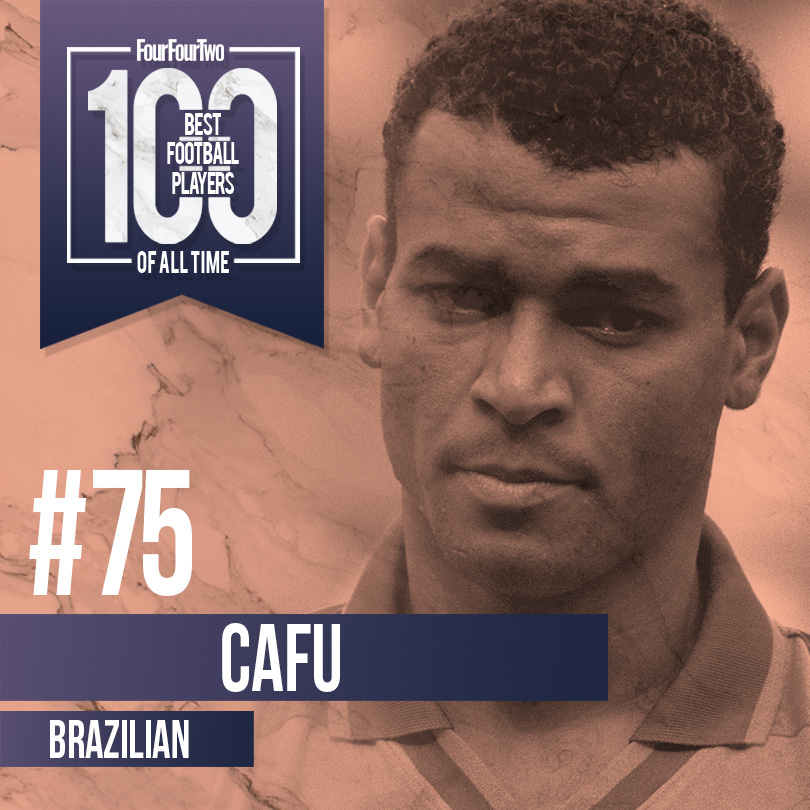
Why are they here?
No other footballer has ever played in three World Cup finals. Cafu did – and won two of them, in 1994 and 2002. His compatriots always liked to say that the right-back had a pulmao invejavel (in English, an enviable lung capacity) as he showed such staggering pace and stamina.
The Brazilian also became known as Pendolino during his time in Italy, after the country’s high-speed train. Cafu spent six successful years at Roma and was later a member of Milan side which beat Liverpool to win the Champions League in 2007.
Career highlight
His celebration after the 2002 World Cup final is popular in Brazil. He stood on the victory podium and, as he raised the trophy, shouted to his wife, "Regina, eu te amo" (“Regina, I love you").
Words: Marcus Alves
74. Josef Masopust
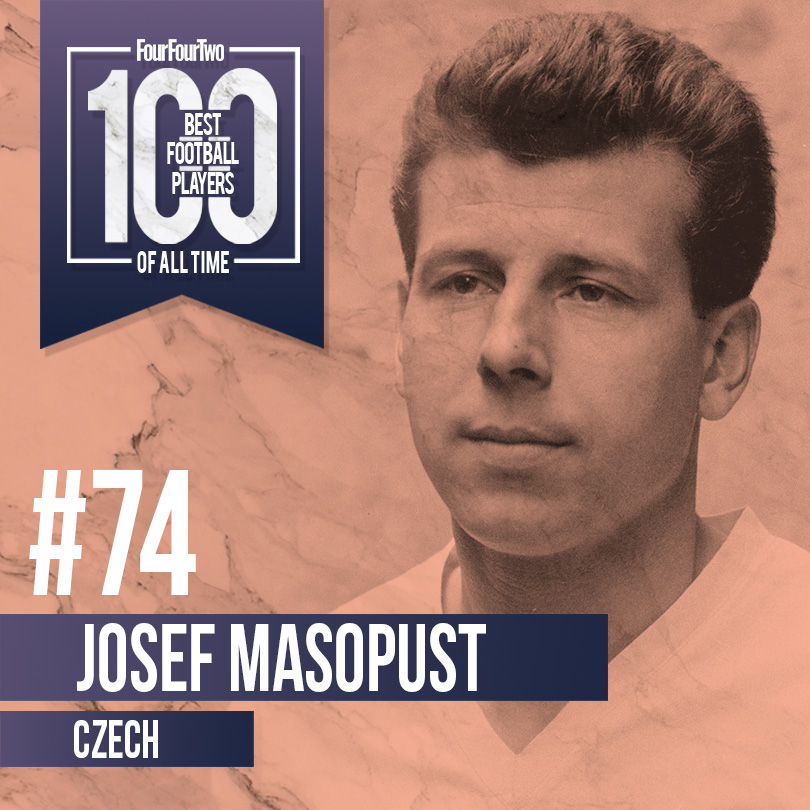
Why are they here?
Masopust represented fair play better than anyone. When Pele was injured during the clash against Czechoslovakia at the 1962 World Cup, but had to stay on the pitch, the midfielder refused to tackle him. The Brazilian superstar was left stunned by such generosity and always admired Masopust, while Eusebio claimed that he felt inferior when playing against him.
Outrageously versatile, he was able to "play the violin and wash the dishes", winning a lot of balls, distributing them and taking on opponents with amazing ease. He won eight Czechoslovakian titles with Dukla Prague.
Career highlight
Masopust led Czechoslovakia to the World Cup final in 1962, scored the opening goal in the 3-1 defeat to Brazil and won the Ballon d'Or that year.
Words: Michael Yokhin
73. Omar Sivori
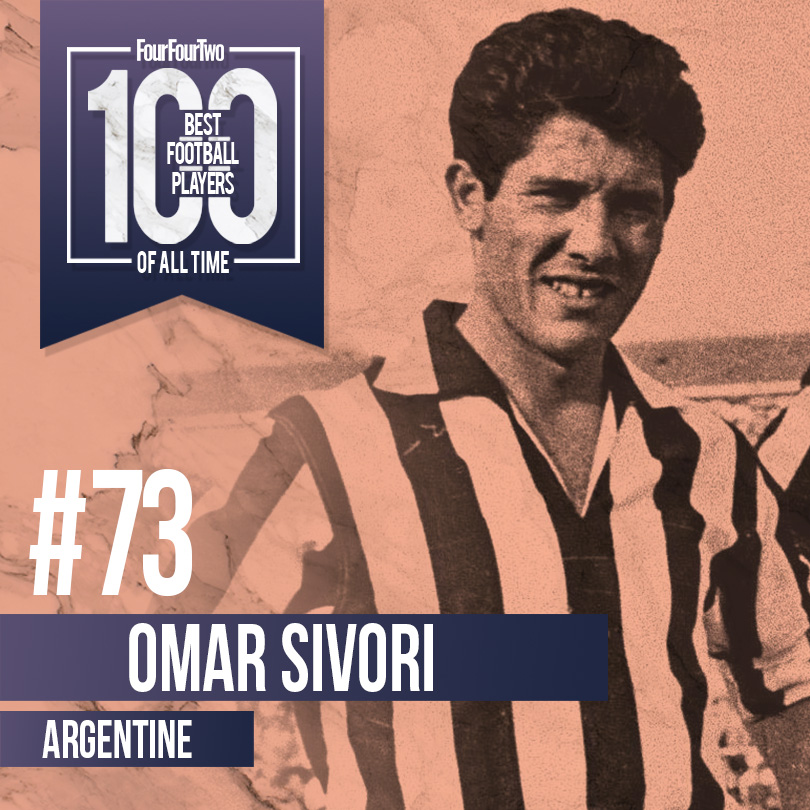
Why are they here?
Lightning quick and with an ability to ghost into space, El Cabezon (or Bighead) won the Argentine league twice with River Plate in the mid 1950s, before heading to Juventus for a then world-record £91,000 fee.
Alongside John Charles and Giampiero Boniperti (the ‘Magical Trio'), Sivori scored shedloads of goals which helped secure three Scuddeti between 1957 and 1961. He also netted the decisive winner for the Old Lady as Juve became the first Italian team to win at the Bernebeu. In 1961, he was awarded the European Footballer of the Year honour. Richly deserved.
Career highlight
In June 1961, Sivori scored a record-breaking six goals in a 9-1 victory over Inter, as Juventus won another Scudetto.
Words: Jon Spurling
72. Jose Andrade
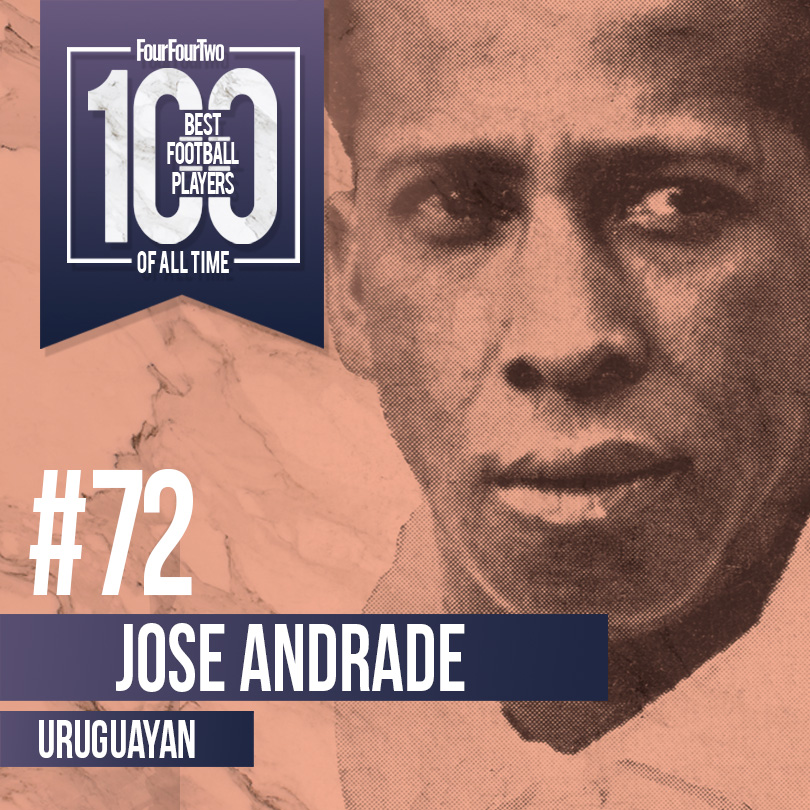
Why are they here?
Although skinny and slight, the defensive midfielder dominated with his athleticism as Uruguay impressed in the late 1920s at the Olympics and at the 1930 World Cup.
As football wasn't yet professional in his native country, Andrade also worked as a street musician and shoe-shiner while turning out for Nacional and Penarol. The ‘Black Pearl’ gained notoriety at the 1924 Olympics for daring to throw rocks back at hostile Argentina fans, who'd pelted the visitors with them before the match. Uruguay's victory in the 1930 World Cup Final over their South American rivals gave him a huge sense of pleasure.
Career highlight
In the process of winning the 1924 Olympic football gold medal, Andrade also became the first black footballer to play at the Games.
Words: Jon Spurling
71. John Charles
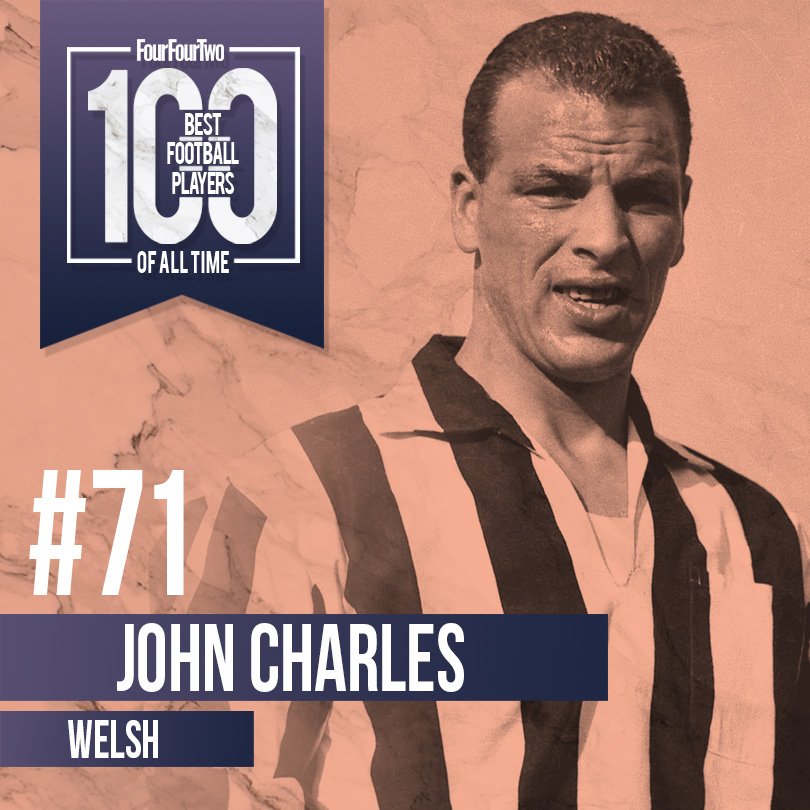
Why are they here?
In 1997, Il Buon Gigante – the Gentle Giant – pipped both Zinedine Zidane and Michel Platini to the title of Juventus fans’ greatest-ever foreign player. A world-record £65,000 signing from Leeds in 1957, Charles scored 108 goals in 155 matches for Juve. He also won two league titles in Italy, while demonstrating that big men (he was 6ft 2in and 14 stone) could indeed possess a sublime touch.
Danny Blanchflower reckoned Charles, who also represented Wales at the 1958 World Cup, was the “most instinctive player I ever saw”.
Career highlight
Charles served notice of his extraordinary versatility at Leeds when, after being converted from an outstanding centre-half into a centre-forward during the 1952/53 season, he went on to score 42 goals in 1953/54.
Words: Jon Spurling
The list
100 to 91 • 90 to 81 • 80 to 71 • 70 to 61 • 60 to 51 • 50 to 41 • 40 to 31 • 30 to 21
20 • 19 • 18 • 17 • 16 • 15 • 14 • 13 • 12 • 11 • 10 • 9 • 8 • 7 • 6 • 5 • 4 • 3 • 2 • 1
Alex Reid is a freelance journalist and the former digital features editor at FourFourTwo. He has also written for the Guardian, talkSPORT, Boxing News and Sport magazine. Like most Londoners, he is a lifelong supporter of Aberdeen FC. He is deceptively bad in the air for a big man. He has never been a cage fighter.

